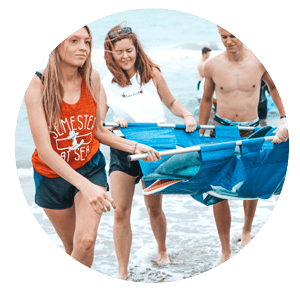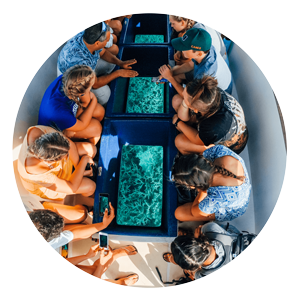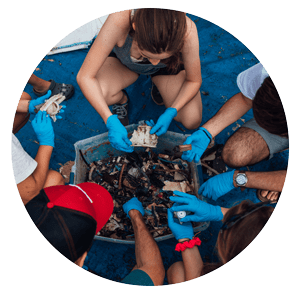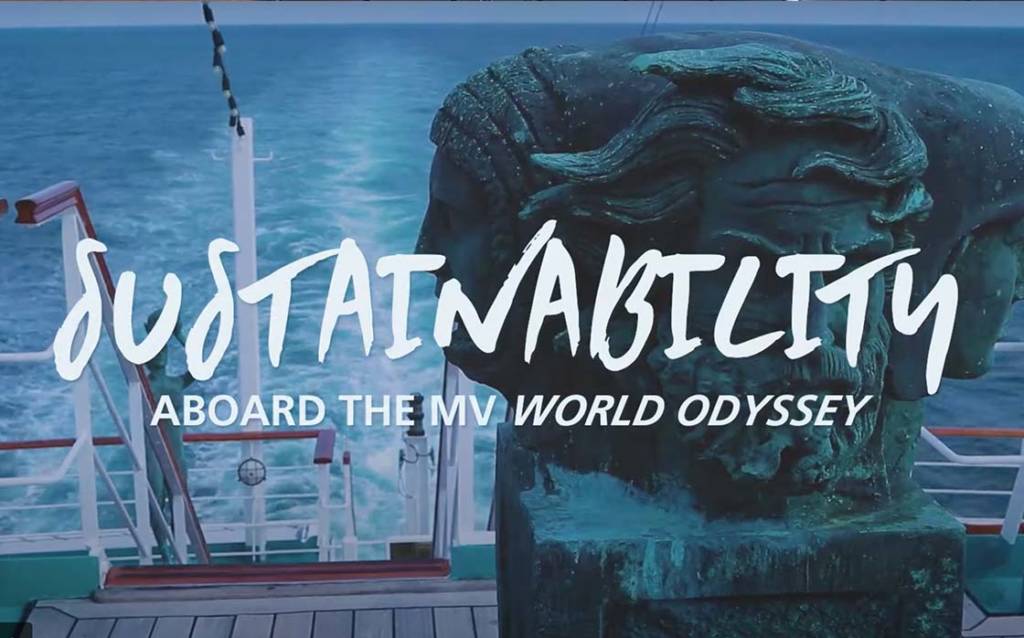About
Sustainability on Semester at Sea
Biodegradable upgrades, no more single serve packaging, dry-dock upgrades & more.
Sustainability on Land
Semester at Sea’s renewed emphasis on sustainability doesn’t stop when students step off the ship. The new Braun/Glazer Ocean Conservation Initiative, made possible by the generous support of Drs. Lisa Braun Glazer and Jeffrey Glazer, established a series of in-country Field Programs that allowed voyagers to get hands-on experience about how conservation is being practiced by other cultures.

Voyagers visited a marine recovery center on the Mediterranean Sea to learn about rescue procedures for dolphins and pollution of the Catalonian coastline.

In Mauritius, students inspected coral reefs through glass bottom boats and helped plant mangrove trees while discussing their importance to the coastal ecosystem.

In Hawaii, a partnership was established with the non-profit organization Sustainable Coastlines. Students participated in a beach cleanup and learned more about how they can combat plastic pollution in their daily lives.
